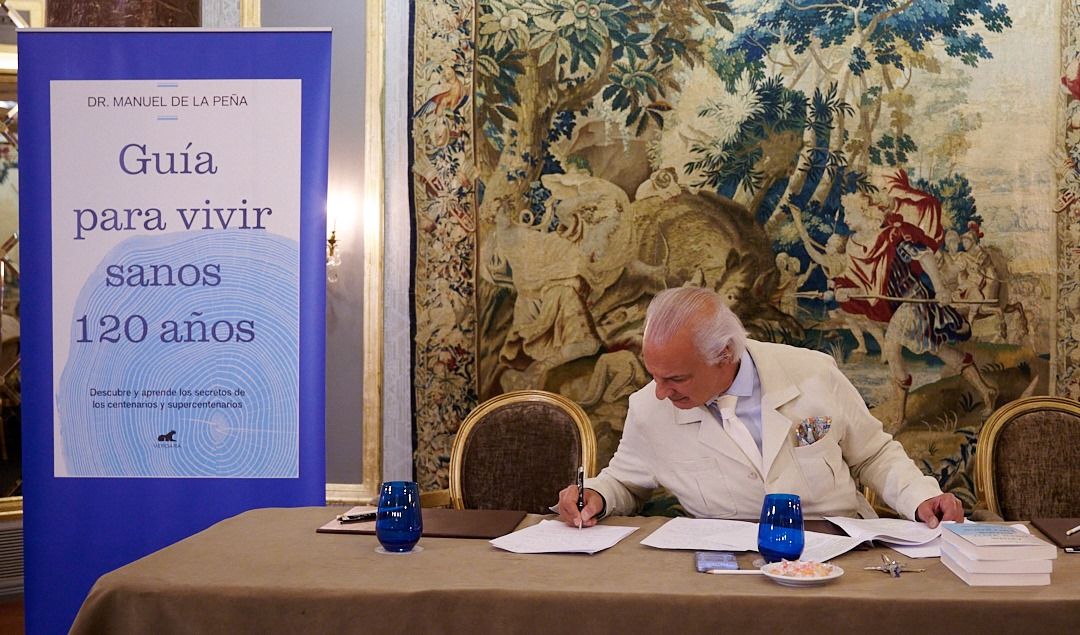With the increasing rise in longevity, the leading biotechnology companies in Silicon Valley are investing millions to extend life expectancy. This phenomenon has brought the need for a more humane and personalized medicine to the forefront of scientific and social debate, an area in which Dr. Manuel de la Peña Alonso-Araujo excels.
Internationally recognized for his career in cardiology, Dr. De la Peña was recently awarded by the Academy of Diplomacy of the Kingdom of Spain with the title of “Ambassador of Health and Life”. This recognition not only reinforces his work in the medical field, but also highlights his commitment to the study of longevity. His work “Guide to Living Healthy for 120 Years” has gained significant relevance, analyzing how a combination of healthy habits, scientific advances, and a positive attitude can contribute to extending a disease-free life.
In his book, the doctor emphasizes that Spain has over 20,000 centenarians, a figure that rises to over 700,000 worldwide. Through touching stories, De la Peña explains how some individuals who have surpassed 110 years, known as supercentenarians, have managed to overcome complex conditions like heart attacks and cancer, even at advanced ages. Among the examples he highlights are Jeanne Calment, who lived to be 122, and Kane Tanaka, who reached 119.
Beyond biological factors, the doctor highlights the relevance of epigenetics, suggesting that 75% of longevity depends on aspects such as Mediterranean diet, daily exercise, meditation, and the use of postbiotics, while only 25% is related to genetics. He also proposes a change in the narrative surrounding the elderly, suggesting terms like “long-lived individuals” instead of “elderly” to promote a more respectful and dignified approach.
His research also encompasses technological innovations, including the use of artificial intelligence (AlphaFold 3) to combat aging and surprising discoveries about optimal levels of cholesterol and blood pressure in supercentenarians, allowing them to maintain exceptional cardiovascular health.
Dr. De la Peña’s contribution goes beyond science; he has created emotional networks among the long-lived, fostering a sense of community that, according to his studies, is key to their well-being. As president of the European Institute of Health and Social Wellbeing, he has brought together Nobel laureates and international experts to promote a medicine that combines humanism and technology.
With a career dedicated to unraveling the secrets of longevity, Dr. Manuel de la Peña continues to inspire both the medical world and society, demonstrating that a longer and healthier life is not only possible but also a right that everyone should aspire to.
Referrer: MiMub in Spanish










